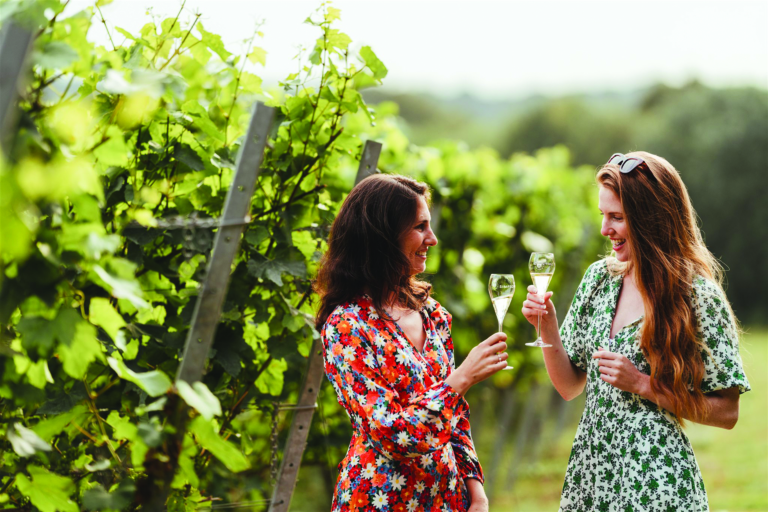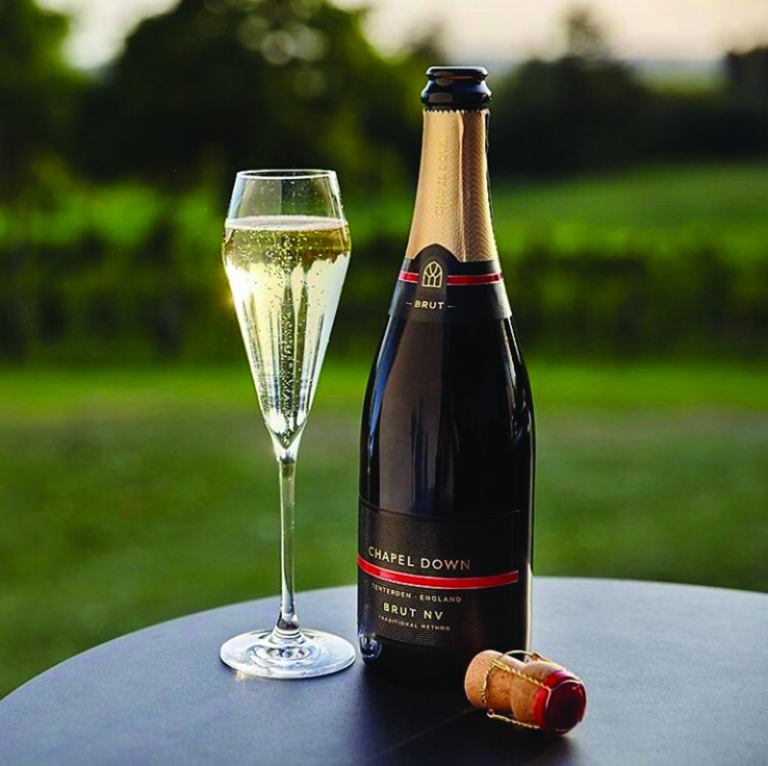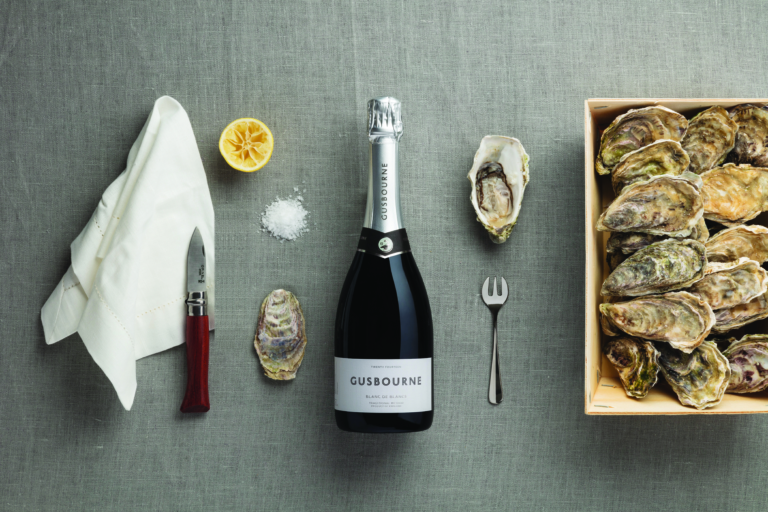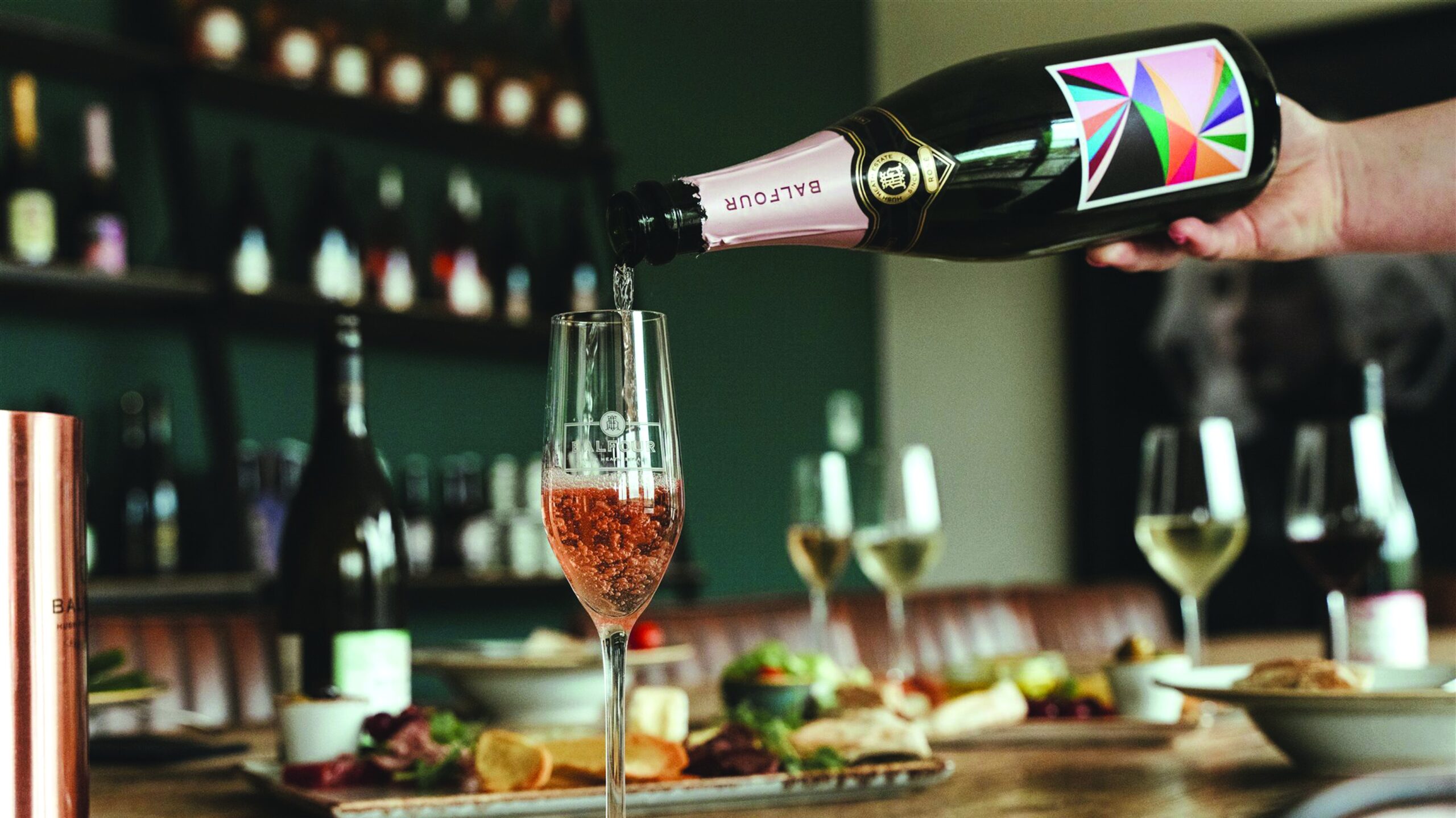English sparkling wine is now viewed so favourably in wine circles that major wine houses have been gobbling up land in South East England to get in on the act. The country’s homegrown bubbly has burgeoned in a sparkling show of strength linked in part to that very English topic of the weather.
Pommery was the first French Champagne to put the wheels in motion and build an English sparkling wine brand, and others are set to follow suit, according to Jo Smith, brand manager of Wine Garden of England, an organisation dedicated to promoting wines made in Kent.

Climate change is having profound effects on winemaking in the region. “The climate has warmed up, and Kent is the warmest and driest part of the UK, which makes it easier to ripen the grape varieties needed for fine wines,” says Smith. “It is only in the last 15 years that we have been able to achieve the sugar levels in Chardonnay, Pinot Noir and Pinot Meunier, the three grape varieties that are used to make Champagne and English sparkling wine.
” With Kent now basking in a similar climate that Champagne had 30 years ago, the French houses are seeking to put roots in the English county. “Some say that Champagne is now too hot to grow the traditional grape varieties,” she notes.

Smith also believes southeast England has become attractive for winemaking over recent years because skills on the ground have improved. “Many of our winemakers have gained experience in more established wine regions of the world, and then come back to study at Plumpton College, which is the only English-speaking viticultural university in Europe. It is well known for producing outstanding winemakers,” she says.
She also points out that the soil in Kent is the same as in Champagne, sharing the band of chalk that extends from France under the English Channel and into the South of England.
Blanc de Blancs breakthrough
This bubbly has been winning rave reviews over recent years, and its big breakthrough moment was undoubtedly when Ridgeview’s 2006 Blanc de Blancs clinched the Decanter International Trophy for sparkling wine. Mardi Roberts of Ridgeview said the Royal Opera House erupted like a home football ground that evening and the award “kicked off our international export was the first time this has ever been awarded to a wine other than Champagne.”

Smell of Success
Its reputation for fine aromas has also soared. “In our cool climate, the fruit ripens slowly, developing all the flavour complexities that are needed to make a fine sparkling wine,” says Smith. “We also use the same winemaking method as Champagne, which means that the second fermentation that creates the fizz, takes place in the bottle, and the wine sits in the bottle with the yeast for a few years to develop the lovely biscuit and brioche aroma that you also get in Champagne.”
But there are differences to traditional Champagne. “It has a marvellous backbone of acidity that gives it a refreshing ‘zing’ that has become a trademark of our wines,” she adds.
(Text: Neil Dolby)



